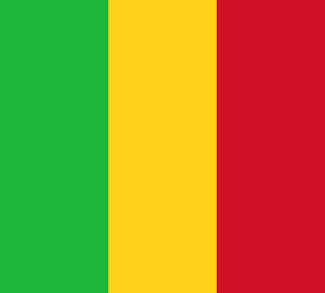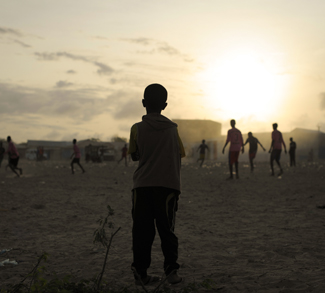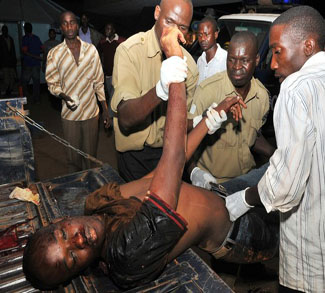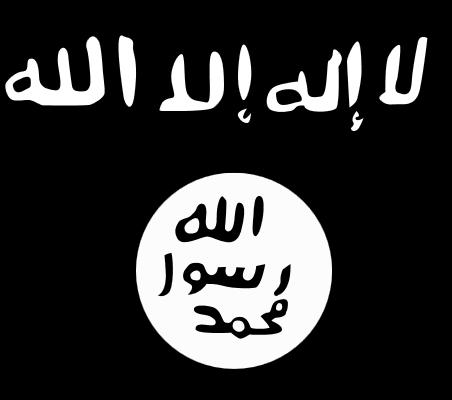Since early 2012, a violent conflict has been brewing in Mali, one that has forced the international community to consider whether or not this North African country is another Afghanistan in the making. The conflict, fought primarily between the government of Mali and a host of insurgent groups, has embroiled the entire northern area of the country in a civil war. This northern region, also known as Azawad, has been effectively ruled by rebel forces since April 2012. Since then, however, rebel armies have been competing with one another over conflicting visions of what an independent Azawad should be.
Following the defeat of Gaddafi in Libya, a group of ethnic Tuareg militants- who had fought alongside pro-Gaddafi forces- flooded back into Mali, from where many of them had originated. They brought with them a fresh supply of arms and equipment from the Libyan theatre. This allowed the Tuareg militants, also known as the National Movement for the Liberation of Azawad (MNLA) to rekindle a decades-old conflict with the central government. The result was the Tuareg rebellion of 2012.
The MNLA, aided in large part by extremist rebel groups, seized control of the Azawad region and declared independence, though their claim was never recognized on the international stage. Following the MNLA’s victory, however, tensions reached a boiling point between the mostly secular, ethnically-identifying Tuareg militants and the Islamic extremists, who sought to impose strict Sharia law over the region. The temporary stability garnered by the rebel victory was soon displaced by renewed fighting, and by the summer of 2012, the Islamic extremist group, Ansar Dine, had emerged as the dominant force in northern Mali.
The government of Mali came forward with requests for international aid, as their defeat in the Tuareg rebellion left them without sufficient military capacity to defeat Ansar Dine. Mali requested military assistance from other nations in the form of supplies, logistics, training, and troops. Initially these requests were met with reluctance, and most nations offered only minimal pledges of logistical support. The Economic Community of West African States (ECOWAS), fearing the political and economic repercussions of an ongoing military conflict in the region and the growth of Islamic extremism, urged its member states to pledge troops for an intervention. The UN authorized an ECOWAS-led military mission, the African-led International Support Mission to Mali (AFISMA), which was to begin deploying soldiers from several neighbouring states in the fall of 2013.
However, Ansar Dine forces made a strong push south toward Mali’s capitol city of Bamako in early January, causing France to respond with its own military intervention. Through Operation Serval, France deployed ships, aircraft, troops, and commandos to Mali to halt the rebel advance. ECOWAS followed France’s lead, deploying AFISMA ahead of schedule beginning with Nigerian troops on January 17th. Moving North from Bamako, French troops have engaged rebel forces, recently retaking the city of Diabaly, and pressing farther north towards the major rebel-controlled cities, Timbuktu and Gao. Meanwhile, further AFISMA forces have begun to transfer to Mali.
Actors
Pro-government Forces
The government of Mali has been severely compromised by the ongoing crisis. In March 2012, a tumult occurred wherein the President was ousted in a coup. Moreover, Mali’s military– which is regarded by several Western powers as woefully unskilled, corrupt, and difficult to train- took a severe beating by rebel forces. Mali will require significant military assistance to defeat the rebels, prevent further incursions towards the capitol, and prevent their northern region from becoming a permanent territorial base for extremism in northern Africa.
France has responded swiftly to bold rebel advancements towards Bamako. Through Operation Serval, an intervention of approximately 2900 personnel, they have ordered airstrikes on many rebel strongholds and pushed the rebels out of Diabaly. France’s interests in the region are multifaceted, but perhaps most important is their colonial legacy in West Africa. Mali and much of the surrounding territories are former French colonies. Following the end of colonization, France entered into trade and defence arrangements with the emergent governments. In addition to protecting potential energy and water interests from extremist control, French leaders view fundamentalist aggression towards their African allies in the traditional French sphere of influence as politically dangerous and a potential military threat.
The Economic Community of West African States (ECOWAS) has organized a military mission to fight rebels in the Azawad region. Originally intended to spearhead military intervention in Mali, their UN-authorized task-force, the African-led International Support Mission to Mali (AFISMA) was pre-empted by France’s Operation Serval. AFISMA is now beginning ahead of schedule and will supplement the French intervention. Though many have still yet to be deployed, approximately 3500 West African troops have been committed to AFISMA from the following ECOWAS countries: Benin, Burkina Faso, Guinea, Cote d’Ivoire, Niger, Nigeria, Senegal, Sierra Leone, and Togo.
Rebels
The National Movement for the Liberation of Azawad (MNLA) was the first group to successfully undermine government control in northern Mali. They are a secular, militant organization of separatist Tuaregs, a traditionally nomadic Berber people with significant populations in parts of Mali, Algeria, and Niger. The creation of an independent Mali following the end of colonial rule conflicted with their traditional lifestyle and their ability to move freely across borders, leading to major conflicts in the 1960s and 1990s. They effectively defeated the government in northern Mali in April of 2012, but their efforts to establish an independent Azawad were undermined when their holdings were attacked by Ansar Dine and other non-secular extremist groups. They have effectively been pushed to the sidelines of the conflict.
Ansar Dine, which translates into “Defenders of the Faith,” is an Islamic militant group committed to imposing strict Sharia law on Mali. Presently, they are the most dominant of the Islamic rebel groups. Many of their members are ethnic Tuaregs and former pro-Gaddafi combatants, with animosity towards the government of Mali enduring from previous Tuareg uprisings. Their current leader is Iyad Ag Ghaly, who was a prominent figure during the Tuareg rebellion of 1990. Ansar Dine forces were recently pushed out of the city of Diabaly by the French military.
Islamic Movement for Azawad is a new group, recently splintered off from Ansar Dine. They are an Islamic organization but have rejected violence and extremism. They have requested dialogue with the government of Mali.
Al Qaeda in the Islamic Maghreb (AQIM) is a large, Al-Qaeda linked organization believed to operate throughout northern Africa, though it seems to be based in Mali. Known as the Salafist Group for Preaching and Combat until 2007, they have a reputation for smuggling, drug trafficking, kidnapping for ransom, and other crimes aimed at raising funds to entice followers and support insurgent activity. It is their goal to turn Mali into an Islamic state, and they allegedly aim to overthrow the government of Algeria as well. AQIM currently holds control over Timbuktu, among other areas, and were recently defeated by French forces in Diabaly.
The Movement for Unity and Jihad in West Africa (MUJAO/MUJAWA) is a relatively recent offshoot of AQIM, which aims to spread Islamic law not only throughout Mali but the rest of West Africa. They have so far been active in Mali and southern Algeria. They currently control Gao and other cities in northern Mali near the borders of Niger and Burkina Faso.
Zak Rose is a contributor to Geopoliticalmonitor.com




